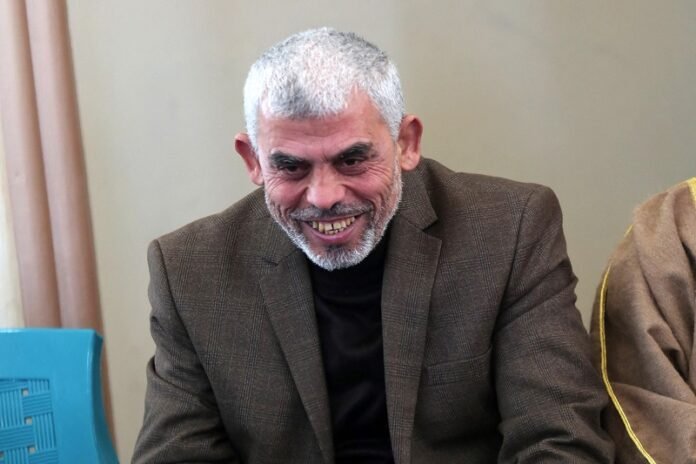Israeli military sources announced early Thursday morning the death of Hamas leader in Gaza, Yahya Sinwar, in an operation carried out in the southern Gaza Strip, specifically in the Rafah area. This operation takes place amidst the escalating military actions between Israeli forces and Hamas over recent months, as the Israeli army intensifies efforts to track down the movement’s leaders.
"يُزعم أنهم قطعوا إصبعه السبابة لأخذه للفحص الجنائي!"
العثور على جثمان الشهيد #يحيى_السنوار يثير تساؤلات:رصاصة في رأسه، هل يعني ذلك أنه كان في مواجهة مباشرة؟
وجوده فوق الأرض، هل يعني حقًا أنه لم يكن مختبئًا في الأنفاق؟
اشتباكه في الميدان، هل الرواية تحمل تفاصيل أخرى مخفية؟ pic.twitter.com/hgM5v0F6Aa
— المغرب الآن Maghreb Alan (@maghrebalaan) October 17, 2024
Operation Details: Unanticipated Movements
One of the key questions raised by the operation is the Israeli forces’ lack of prior knowledge of Sinwar’s presence at the site. How can a military force, equipped with such sophisticated tools and precise intelligence, carry out an operation without knowing that such a high-profile target is present? Although the Israeli army announced that it had targeted three militants, Sinwar’s identity was only confirmed after DNA tests and a comparison with his previous records held by Israeli authorities.
"يُزعم أنهم قطعوا إصبعه السبابة لأخذه للفحص الجنائي!"
العثور على جثمان الشهيد #يحيى_السنوار يثير تساؤلات:رصاصة في رأسه، هل يعني ذلك أنه كان في مواجهة مباشرة؟
وجوده فوق الأرض، هل يعني حقًا أنه لم يكن مختبئًا في الأنفاق؟
اشتباكه في الميدان، هل الرواية تحمل تفاصيل أخرى مخفية؟ pic.twitter.com/hgM5v0F6Aa
— المغرب الآن Maghreb Alan (@maghrebalaan) October 17, 2024
Previous Operations: Was It Part of a Planned Strategy or a Surprise?
The Israeli army stated that Sinwar’s killing came as a result of a series of military and security operations in recent weeks, which restricted his ability to move and operate freely. So, was Sinwar’s elimination part of a long-term plan to undermine Hamas’ infrastructure, or did it happen coincidentally during other operations in the area?
Verification Technology: Its Role in the Operation
Confirming Sinwar’s identity was not immediate, as Israeli forces had to send DNA samples to a forensic institute, raising questions about the reliance on technology in such sensitive operations. Could his identity have been verified faster? Additionally, the army relied on more traditional methods, such as dental comparisons, reflecting the challenges intelligence work faces under these conditions.
Security Conditions: The Tunnels and International Communications
Since October 7, Sinwar had been hiding in Gaza’s tunnels, trying to evade Israeli pursuit. Despite being relatively isolated from the outside world, he maintained indirect communications with Hamas leaders and countries mediating negotiations with Israel. This raises questions about the effectiveness of communication under intense military pressure and how this isolation affected his ability to lead the movement in such complex circumstances.
Future Scenarios: The Impact of Sinwar’s Death
With the death of Yahya Sinwar, who was considered one of Hamas’ most prominent leaders, the question remains: what is next for the movement? Will Hamas’ ability to manage operations and negotiations be affected by this significant loss? What leadership vacuum will he leave behind? On the other hand, Sinwar’s death is a strategic victory for the Israeli army, but it also raises questions about the nature of Hamas’ response and Palestinian resistance in the coming days.
Intelligence and Military Challenges
Despite the intelligence used for the operation, the Israeli security institution admitted a lack of precise details about Sinwar’s exact whereabouts. How will Israel address this intelligence gap in the future? Does the army overly rely on luck and routine operations to locate Hamas leaders?
In conclusion, Sinwar’s death appears to result from a combination of coincidence and intensive intelligence work. However, the lingering question is the impact this event will have on the future of the conflict in Gaza and Hamas as a whole.


